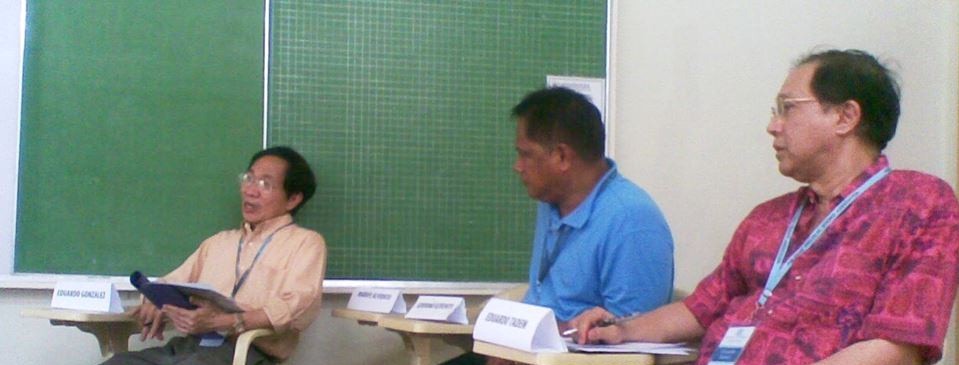Professors of the Asian Center, Dr. Eduardo T. Gonzalez and Dr. Eduardo C. Tadem, comprised a panel on ASEAN regional integration at the 2014 International Conference of the Philippine Political Science Association (PPSA), which was held from 2–3 May 2014 at the University of the Philippines Visayas, Iloilo Campus in Iloilo City.
Dr. Gonzalez, who is also the Dean of the Asian Center, presented “Revisiting the trajectory of Spanish colonialism in the Philippines: Consequences for ASEAN integration where he argued, among other things, that identity of the colonizer mattered: the Philippines’ contemporary institutional performance suffers from the disadvantages of having an “inferior” Spanish colonial legacy of political organization, unlike its Asian neighbors, which have "superior" modern-day institutions because they had less capricious governance structures under British, French and Dutch rule. Using the method of natural experiments in history, and drawing from other similar studies, the paper also points out that the Philippines fared better as colonialism progressed, consistent with the rise of the European Enlightenment and the Industrial Revolution. However, the pecking order generated by colonialism will not be easily rearranged, and ASEAN has the unenviable challenge of refashioning the Southeast Asian hierarchy of development to make it more equitable, in a manner that is not independent of historical legacies.

PHOTO: Dr. Gonzalez (L) and Dr. Tadem (R) with fellow panelist.
In his paper, “ASEAN: Delusions of Integration,” Dr. Tadem argues that while hopes for the economic integration of ASEAN by 2015 are high among state and market players, the historical pattern, however, points to a different outcome. Notions of national sovereignty continue to undermine regional integration and a Southeast Asian identity among citizens of member-countries has yet to crystallize. Intra-ASEAN trade has been stagnant since 1995 and the trend, instead, has been towards increased external economic ties with non-ASEAN countries. ASEAN economies are not complementary as their export product lines compete with each other. Trade disputes continue to haunt intra-ASEAN relations. Territorial conflicts are no help either. The different levels of economic development also pose a barrier with the more developed societies leaving behind the less developed ones. Internally, social development issues such as poverty, housing, education, unemployment, and health take a back seat in favor of unrestrained economic growth which has only deepened social inequalities."
Dr. Eduardo Gonzalez teaches MA- and Ph.D-level Philippine Studies courses at the Asian Center, while Dr Tadem handles graduate classes in Southeast Asian Studies, including a course, Theories and Perspectives in Area Studies. The Asian Center offers graduate programs in Asian Studies and in Philippine Studies.

